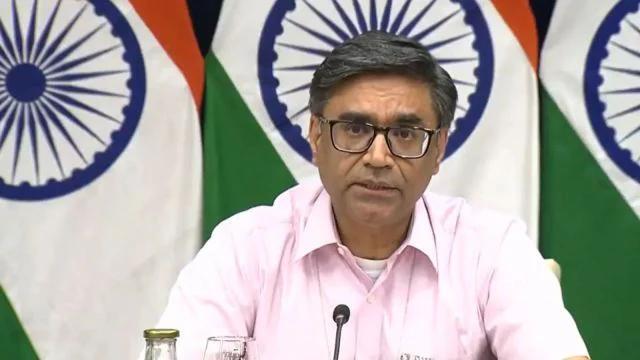
IMF Board Should Look Deep Within Before Making Decision: India on Pak ‘Bail Out’
The International Monetary Fund (IMF) is set to review Pakistan’s loans, and ahead of this crucial meeting, India has urged the IMF board to take a closer look at the facts before making any decision to “bail out” the country. In a sharp commentary, Foreign Secretary Vikram Misri emphasized that the IMF board members should introspect and examine the situation carefully before opening their pockets to help Pakistan.
The statement by the Foreign Secretary comes at a time when Pakistan is facing a severe economic crisis, with its foreign exchange reserves dwindling and the country struggling to meet its debt obligations. The IMF has already provided financial assistance to Pakistan in the past, and the upcoming review is expected to be a crucial one, with the lender considering extending more aid to the country.
However, India’s stance is clear: the IMF board should not rush into a decision without carefully examining the facts and circumstances. In an apparent reference to the repeated instances of terrorism emanating from Pakistan, Misri said, “I think the case with regard to Pakistan should be self-evident to those people who generously open their pockets to bail out this country.”
The Indian government’s concerns are not unfounded. Pakistan has been accused of providing safe haven to terrorists and sponsoring cross-border terrorism, which has resulted in significant economic and human costs for India. The country has suffered numerous terrorist attacks, including the 2008 Mumbai attacks and the recent Pulwama attack, which killed over 40 Indian security personnel.
India’s objections to IMF assistance to Pakistan are not new. The country has consistently raised concerns about the misuse of international aid by Pakistan, which has been accused of using the funds to fuel its military and terrorist activities. India has also pointed out that Pakistan has failed to take concrete steps to combat terrorism and has not demonstrated a commitment to tackling the issue.
In recent years, India has been at the forefront of efforts to isolate Pakistan internationally, with the country’s diplomatic efforts focusing on highlighting Pakistan’s role in promoting terrorism. The Indian government has also taken steps to counter Pakistan’s propaganda and disinformation campaigns, which have been aimed at deflecting attention from the country’s own human rights abuses and terrorism-related activities.
The IMF’s decision to review Pakistan’s loans is seen as a crucial moment in the country’s economic crisis. The lender has already provided financial assistance to Pakistan in the past, but the country’s economic situation has deteriorated significantly in recent years, with inflation soaring and the country struggling to meet its debt obligations.
Pakistan’s economic crisis has been exacerbated by a range of factors, including corruption, mismanagement, and a lack of transparency. The country’s debt has ballooned, with Pakistan’s external debt standing at over $100 billion. The country’s foreign exchange reserves have also dwindled, with the reserves standing at a mere $7.5 billion.
In this context, the IMF’s decision to review Pakistan’s loans is seen as a critical moment. The lender is expected to consider extending more aid to Pakistan, but only if the country demonstrates a commitment to implementing fiscal reforms and tackling corruption.
However, India’s stance is clear: the IMF board should not rush into a decision without carefully examining the facts and circumstances. Misri’s statement is a clear indication that India will not support any decision to provide aid to Pakistan without a concrete commitment from the country to address the issues of terrorism and human rights abuses.
In conclusion, India’s stance on the IMF’s decision to review Pakistan’s loans is a critical one. The country’s Foreign Secretary has urged the IMF board to look deep within themselves and at the facts before making any decision to “bail out” Pakistan. India’s concerns are not unfounded, given the country’s history of promoting terrorism and human rights abuses. The IMF board should take a careful and considered approach, examining the facts and circumstances before making any decision.






